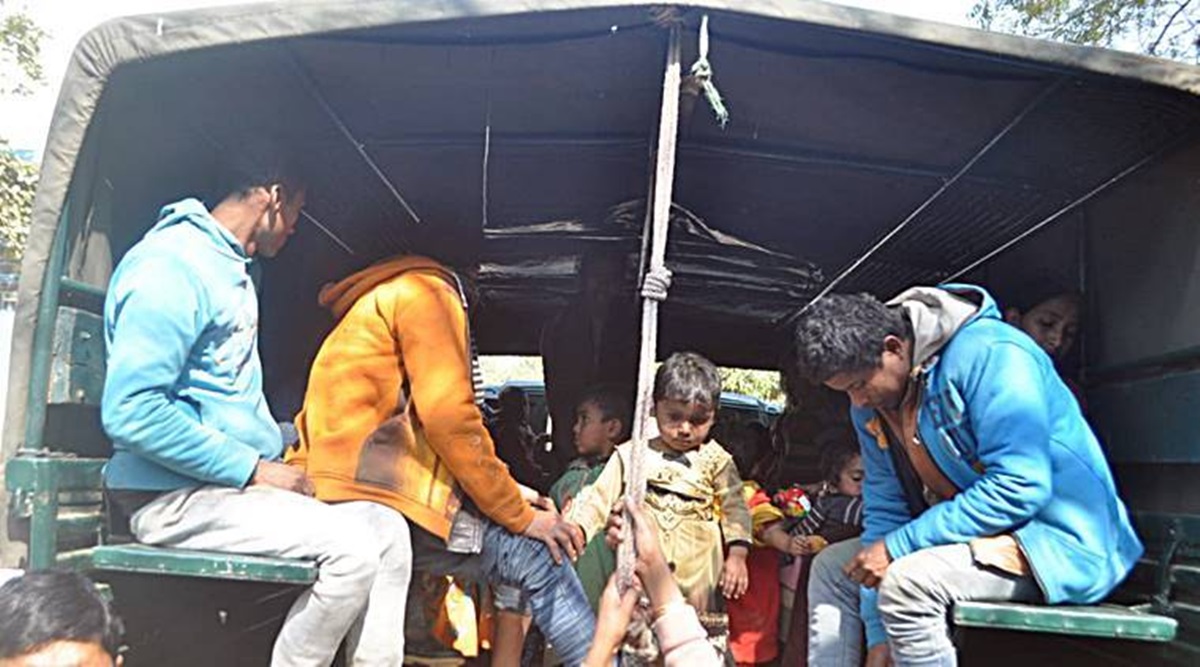THE SUPREME Court rejected a prayer against possible deportation of members of the Rohingya community detained in Jammu.
 Regarding the contention raised about the present state of affairs in Myanmar, the court said: “We have to state that we cannot comment upon something happening in another country.”
Regarding the contention raised about the present state of affairs in Myanmar, the court said: “We have to state that we cannot comment upon something happening in another country.”THE SUPREME Court on Thursday rejected a prayer against possible deportation of members of the Rohingya community detained in Jammu, but said prescribed procedure should be followed while sending them back to Myanmar.
A bench headed by Chief Justice of India S A Bobde noted that the Centre in its reply had made “two serious allegations”, which “relate to (i) the threat to internal security of the country; and (ii) the agents and touts providing a safe passage into India for illegal immigrants, due to the porous nature of the landed borders”.
The bench, also comprising Justices A S Bopanna and V Ramasubramanian, recalled that the court had in October 2018 rejected a similar plea in respect of those detained in Assam, and said, “Therefore, it is not possible to grant the interim relief prayed for.”
“However, it is made clear that the Rohingya in Jammu, on whose behalf the present application is filed, shall not be deported unless the procedure prescribed for such deportation is followed,” the court said in its order.
Petitioner Mohammed Salimullah – a Rohingya – had sought release of the people from his community detained in Jammu and Kashmir and a direction to the Centre not to deport them to Myanmar. He contended that they will be subjected to genocide if sent back.
Appearing for Salimullah, Advocate Prashant Bhushan had earlier argued that rights under Articles 14 and 21 are available to all persons who may or may not be citizens. He contended that the principle of non-refoulement – right not to be sent to a place where they may face persecution – is part of the right guaranteed under Article 21 of the Constitution. He argued that the Rohingya were persecuted in Myanmar even when an elected government was in power. Now that the elected government has been overthrown in a military coup, the danger is imminent, he said.
The Centre, however, said that India is not a signatory to the United Nations Convention on the Status of Refugees 1951 or to the 1967 Protocol relating to the Status of Refugees and “that the principle of non-refoulement is applicable only to contracting States”.
The court after hearing both sides said: “It is… true that the rights guaranteed under Articles 14 and 21 are available to all persons who may or may not be citizens. But the right not to be deported is ancillary or concomitant to the right to reside or settle in any part of the territory of India guaranteed under Article 19(1)(e).”
Regarding the contention raised about the present state of affairs in Myanmar, the court said: “We have to state that we cannot comment upon something happening in another country.”
Appearing for the Centre, Solicitor General Tushar Mehta had said that the government will follow the legal procedure before deporting anyone. “They are illegal immigrants. We are always in touch with Myanmar and if they confirm, they can be deported,” he had said.









0 Comments